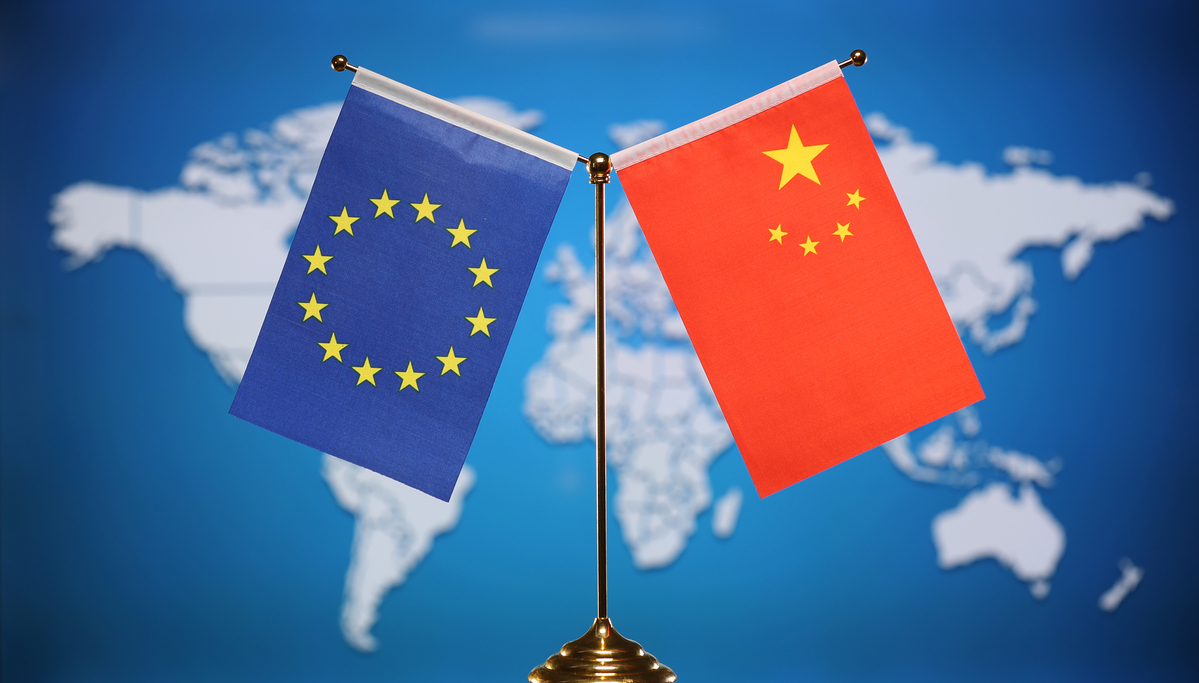
Flags of China and the European Union are seen in this photo. (Photo: VCG)
Despite their differences, the pendulum of Sino-EU relations has never swung out of the rational range of serving their common interests. As such, the US administration's attempts to hijack their relations has gained little traction with the bloc as a whole.
Particularly, since the European Union has been paying a heavy price for the Ukraine crisis that the United States has instigated. The EU is now well aware, if it wasn't before, that the US is only using it for its own ends.
Having tasted the true flavor of the America-is-back wine brewed by the Joe Biden administration, the European Council, the bloc's legislature, held a strategic discussion on the EU's China policy in October, emphasizing that the bloc should have an independent China policy rather than doing the US' bidding. That is a drastic adjustment from the pre-Ukraine crisis state when warnings of a "China threat" were prevalent.
Rather than effectively driving a wedge between China and the EU as the Biden administration wanted to do, it appears merely to have pushed the EU further away from the US. Especially after the German and French leaders had respective face-to-face meetings with President Xi Jinping last month that generated fresh momentum to translate the EU's newly agreed "independence" in its China policy into practical actions.
That being said, European Council President Charles Michel's visit to Beijing on Monday, during which the EU chief lawmaker will be meeting with President Xi, offers another opportunity to inject renewed vigor into relations by deepening mutual understanding and trust.
The EU and China have a solid foundation on which to do that, as both uphold multilateralism in the face of unilateralism and have common ambitions in their respective efforts to address climate change. They have also fostered close economic and trade cooperation over the years.
Over the first 10 months of this year, China-EU trade hit $711.37 billion, up 6.3 percent year-on-year, which should drive home the fact that not only is the US' bid to try and decouple the EU and Chinese economies divorced from reality, but also that any attempts in this regard are futile.
Although the European Council unequivocally expressed in a statement on Michel's Beijing trip released last week that the "visit is a timely opportunity for both EU and China to engage", the extent to which some US think tank researchers and politicians have gone to portray the visit otherwise exposes how unwilling Washington is to see the two sides making joint efforts to strengthen their strategic coordination and deepen their pragmatic cooperation.
China and the EU should take the opportunity of Michel's visit to prevent the agenda of global governance from being led astray by the US, and agree on ways to work together to address the global deficits in trust, governance and development that the US seeks to exploit to its own advantage.


